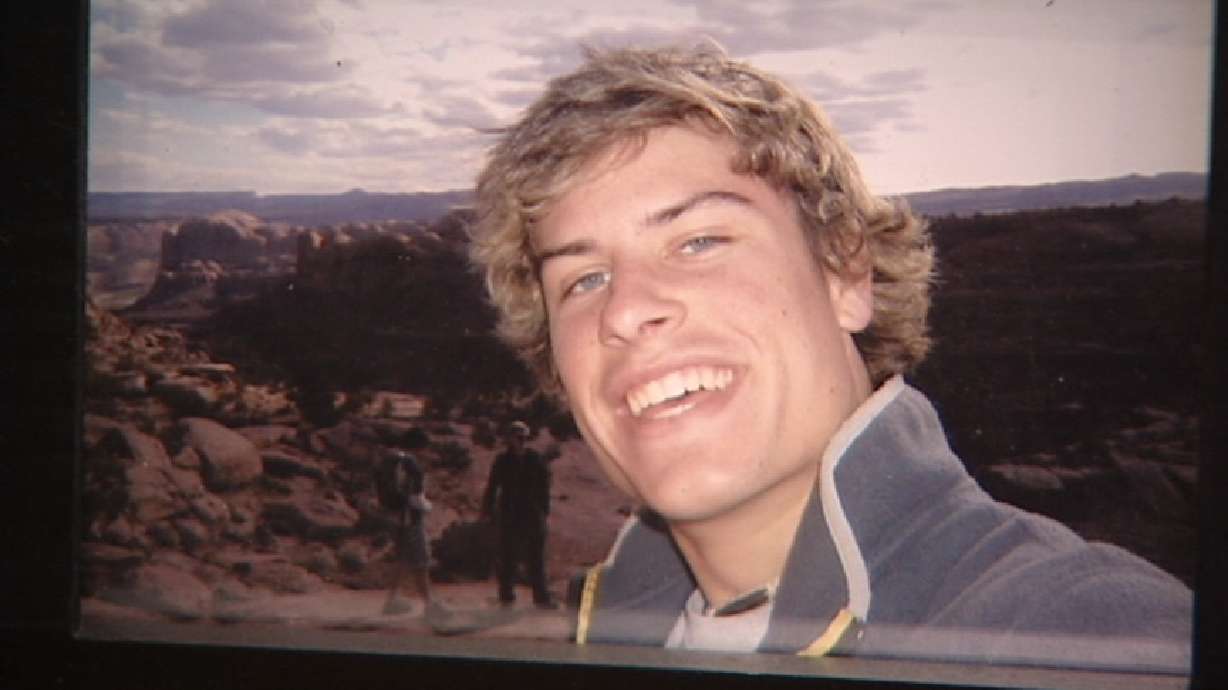Estimated read time: 2-3 minutes
This archived news story is available only for your personal, non-commercial use. Information in the story may be outdated or superseded by additional information. Reading or replaying the story in its archived form does not constitute a republication of the story.
Shelley Osterloh ReportingThe death of a child is a parent's worst nightmare, and their grief is painful and agonizing. What can friends and family members do to help? It's the topic of a lecture tonight at Primary Children's Hospital.
Sandy and Craig Stark say it had been a wonderful day. They were hiking near Moab with their two sons, Thayne and Ty. Hours later 18-year old Thayne lost his footing and tumbled to his death.
Craig Stark: "He was a great kid. We know he would have been successful, and for this to happen was devastating for everyone."
The Starks say the outpouring of concern and caring from others helped them through a difficult time.
Sandy Stark: "What I remember are the people that came by and spent time at our home and talking with us and sharing time. It truly sustained us."
Hundreds of Thayne's friends came to the funeral. They decorated his locker. Many wrote notes and shared their memories of Thayne with the family. Even a preschooler's note was comforting.
Sandy Stark: "This says, 'I miss your son. I wish your son was alive. I liked it when he pushed me on the swing.'"
They say they understand that people don't quite know what to say or do.
Craig Stark: "I used to tell people that came up, 'You don't even have to say anything, just the fact that you are here says it all.'"
There are some things the Starks suggest caring friends avoid, like trying to tell them they know what they are going through or that their pain isn't as bad as some else's.
Sandy Stark: "I know somebody who lost both of their children within six months of each other, that kind of thing, it doesn't make you feel any better."
Bereavement Researcher, Dr. Jan Hare says people need to get over their own discomfort and just be there.
Jan Hare, Ph.D., University of Wisconsin-Stout: "And recognizing that you can't make it better. But you just can be there with somebody. And all parents say that's really what they want is just for somebody to be present in their pain, and not be anxious and want it to go away."
She says caring friends should let parents grieve in their own time.
Jan Hare, Ph.D., University of Wisconsin-Stout: "One thing I think we need to avoid is thinking that there's any end to grief, that it's on a time table, that after a certain amount of time that people need to be over it."
Though it may never go away, things do get better in time. And the Starks say talking and sharing their memories of Thayne help.









